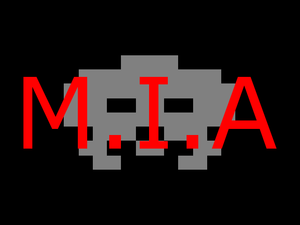Lost In Translation/Cyber Sled
| Cyber Sled | |
|---|---|
| Manufacturer | Namco |
| Released | 1993 |
| Control Method |
Analog joystick 4 Button(s) |
| Main CPU | (2x) 68000 (@ 12.288 MHz) M6809 (@ 3.072 MHz) HD63705 (@ 2.048 MHz) TMS32025 (@ 24.000 MHz) TMS32025 (@ 96.000 MHz) |
| Sound CPU | Stereo C140 (@ 21.390 kHz) YM2151 (@ 3.580 MHz) |
| Video Details |
Raster (Horizontal) 496 x 480 pixels 60.00 Hz 32,768 Palette colours |
| Screens | 1 |
| ROM Info | 31 ROMs 13,819,904 bytes (13.18 MiB) |
| MAME ID | cybsled |
About The Game
Piloting a colorful tank that slides over the surface like a 'Sled' in an arena of the future, the pilots fight for prestige and glory. Ending the game (either by winning or being eliminated) gives the player a rank and a letter grade to show how good you really are.
Trivia
Cyber Sled was only released as a dedicated 2-player sit-down cabinet. The plastic mouldings around the screens and the twin joysticks give the illusion of piloting a futuristic tank. The player-one position is all blue, and the player-two position is all red. Unlike later sit-down style 'driving' cabinets, the seats are not adjustable.
Victor Entertainment released a limited-edition soundtrack album for this game (Cyber Sled : Namco Game Sound Express Vol.10 - VICL-15024) on 21/01/1994.
Series
- Cyber Sled (1993)
- Cyber Commando (1995)
Staff
- Music Composed By
- Shinji Hosoe
Cabinet and Artwork
Ports
- Consoles
- Sony PlayStation (1995)
Soundtrack Releases
| Album Name | Catalogue No. | Released | Publisher | Comments |
|---|---|---|---|---|
| Namco Game Sound Express VOL.10 Cyber Sled | VICL-15024[1] | 1994-01-21 | Victor Entertainment | CD version. |






